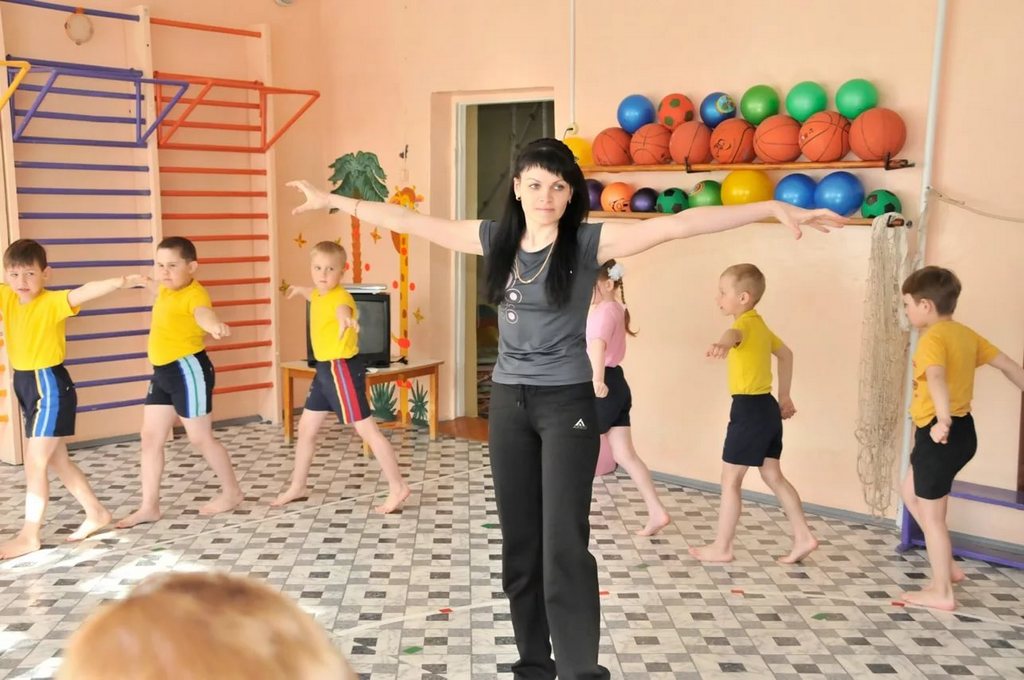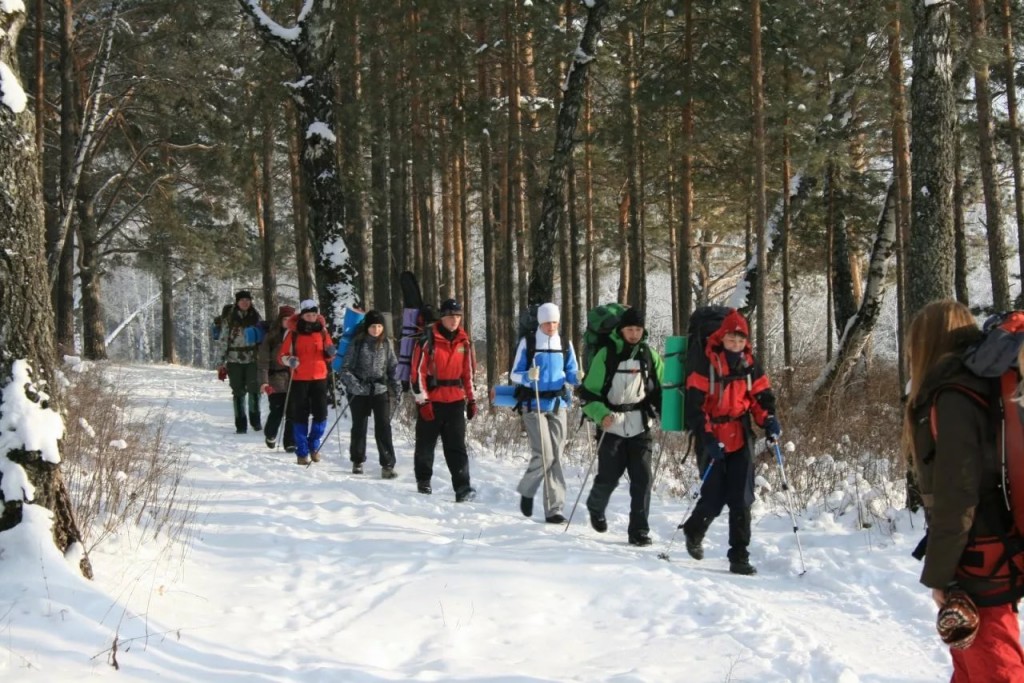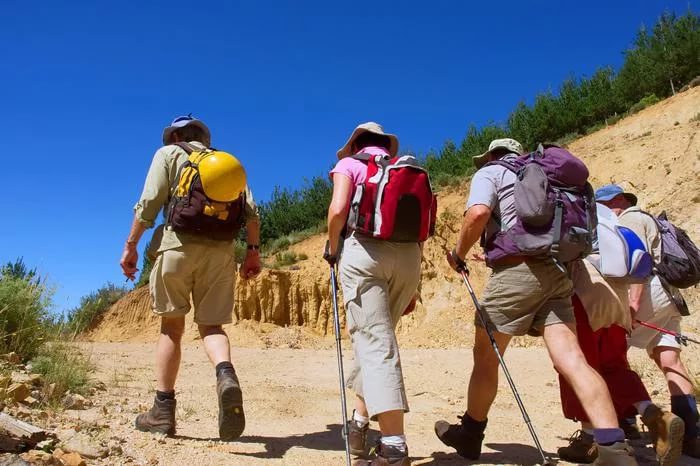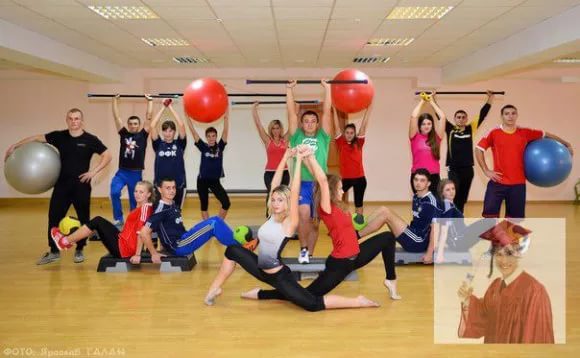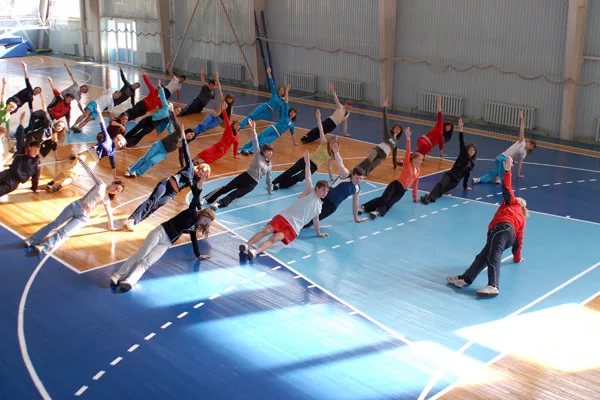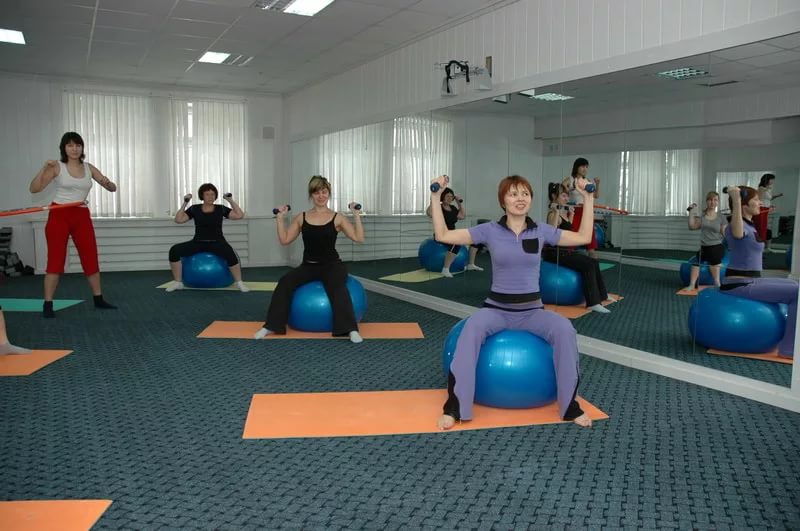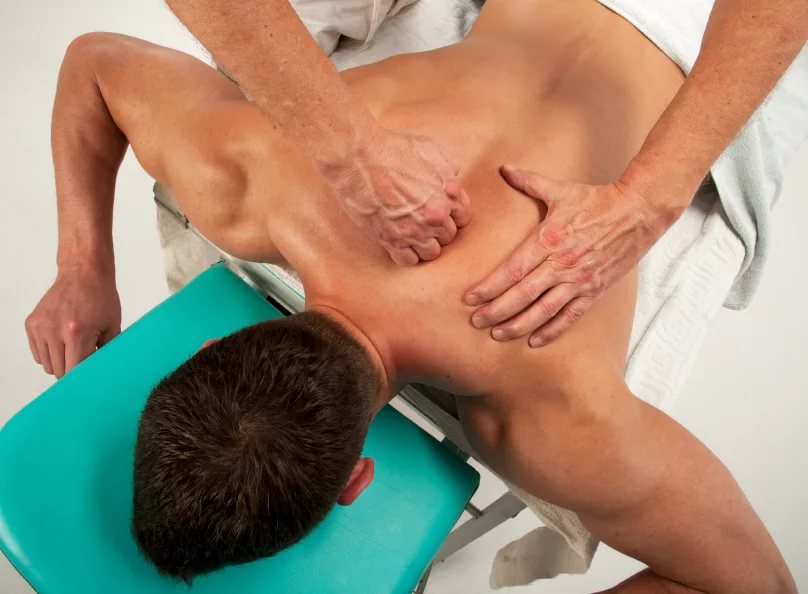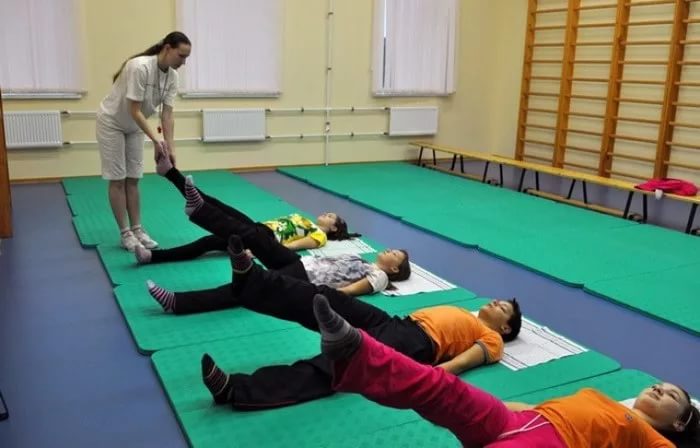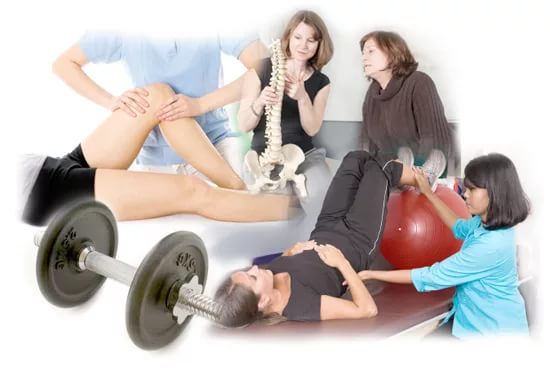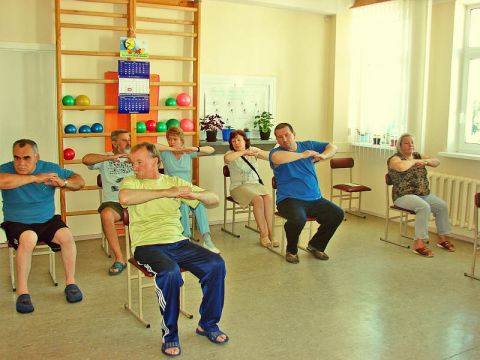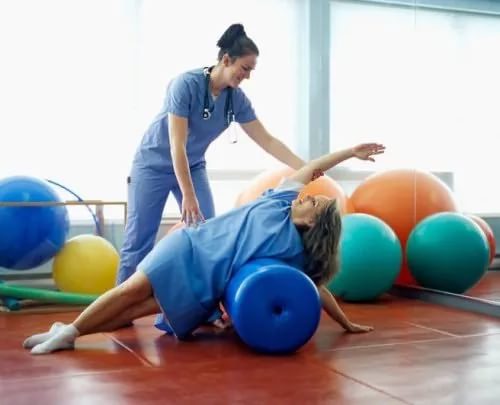Specializations
Specialization 1-03
Physical education in a preschool education institution is one of the most important elements of the physical education system, which lays the foundation for the formation of physical culture of a person's personality.
The opening of specialization at the Faculty of Physical Education is due to the fact that physical education classes are compulsory in preschool institutions. Lectures in the classrooms of the university, practical classes - on the basis of preschool institutions No. 11,34,165.The material and technical support of these institutions conducts classes with students at a high level of the university level, when performing certain types of activities, students transform the obtained theoretical knowledge into practical skills, master the methods of teaching and educating preschoolers and comprehend the basics of pedagogical skills.
During the training, students receive in-depth knowledge of preschool physical education, studying special disciplines: psychological, pedagogical and biomedical foundations, theory and methodology of physical education, as well as a full course of sports disciplines: gymnastics, outdoor and sports games, swimming, ski training, athletics, etc.
Graduates of the "Preschool Physical Education" specialization.
Specialization 1
Educational activity, the processes of health improvement of the younger generation are in many respects in the field of physical culture and
The relevance of the problem of training specialists for activating the physical culture and
Recently, methodologists, teachers
The acquisition by students of knowledge on physical culture and
Students will practice on specialization in the governing bodies of physical culture, sports and tourism, children's and youth sports schools, firms engaged in tourism activities, sports clubs in Gomel and the region, where highly qualified methodologists, teachers-
The process of training specialists for the sphere of physical culture and
Specializations 1-03 02 01 05 "Fundamentals of Physical Therapy " and 1-03 02 01 04 "Fundamentals of Physical Rehabilitation"
World practice shows that disciplines that contribute to the fastest physical rehabilitation of the body play an increasingly important role in the treatment of patients. In many countries, the training of such specialists, called physical rehabilitation therapists or kinesitherapists, is expanding. One of the most important aspects of training rehabilitation therapists is physical therapy.
The purpose of the course: mastering by students the basics of using the natural biological function of the body - movement - to restore health, functional state and working capacity, impaired by diseases, injuries or physical, chemical and social factors, as well as the prevention of diseases.
Objectives of the course:
familiarization of students with the clinical and physiological mechanisms of the therapeutic and rehabilitation action of physical exercises;
assimilation of methods of dosage of physical activity in the classroom of medical physical culture;
mastering the methods of medical and pedagogical assessment of the impact of physical exercises and the effectiveness of the use of medical physical culture;
analysis of the setting of tasks depending on the period of exercise therapy and the mode of physical activity;
formation of skills and abilities of the organization of work in medical physical culture.
The educational process consists of lectures, practical and laboratory exercises. Independent work of students consists in studying the recommended literary sources, drawing up exercise complexes, planning and drawing up individual rehabilitation programs depending on the disease.
The instructor-methodologist of exercise therapy and physical rehabilitation in accordance with the requirements of the specialty for the correct implementation of rehabilitation measures should know:
anatomical and physiological characteristics of the body of children and adolescents, boys, girls, older people, especially the female body;
etiology, pathogenesis, clinical manifestations and basic principles of treatment of diseases of the cardiovascular and respiratory systems, metabolic diseases and diseases of the digestive system, diseases and injuries of the nervous system and musculoskeletal system, diseases of the female genital area;
clinical and physiological substantiation of the use of physical therapy for diseases of internal organs and joints, for surgical diseases and injuries, for diseases and injuries of the nervous system;
peculiarities of physical exercises in health groups and special medical groups;
preventive and therapeutic value of physical culture in obstetric and gynecological practice.
The instructor-methodologist of exercise therapy and physical rehabilitation, in accordance with the individual program of medical rehabilitation and the basics of the training process, should be able to:
carry out management of all aspects of human health improvement and physical rehabilitation of sick and disabled people with the following diseases:
diseases of the cardiovascular system;
respiratory diseases;
metabolic diseases;
injuries and diseases of the musculoskeletal system;
injuries and diseases of the organs of the chest and abdominal cavity;
diseases and injuries of the nervous system;
diseases of the female genital area;
to find out the nature of motor disorders and the degree of limitation of motor function;
to determine the patient's capabilities for complete or partial structural and functional recovery of the damaged link of the musculoskeletal and muscular apparatus;
to determine the prognosis of the development of adaptive and compensatory capabilities of the patient's body in this particular disease;
to determine the physical performance of the body as a whole and the functional state of individual organs and systems, taking into account the determination of the tolerance of physical loads of different nature, volume and intensity;
objectively record and analyze the effectiveness of an individual medical rehabilitation program;
master all types of massage, physiotherapy, hydrokinesis therapy, the method of biomechanical stimulation.
The program material is based on the study of subjects included in the curricula of universities of physical culture (anatomy, physiology, psychology, biochemistry, hygiene, sports medicine with the basics of private pathology, theory and methodology of physical culture, etc.). The Physical Therapy Instructor Training Program is compulsory, organized and conducted during the day, and is scheduled for the class. The program includes theoretical (lectures), practical (including preclinical and clinical practice), seminars and independent studies.
Theoretical classes in all sections of the program are conducted in a stream or course in the form of lectures, preclinical and clinical practice, seminars - with groups of 10-12 people. Much attention is paid to independent studies of students, who are given assignments and control over their implementation. Preclinical practice is aimed at instilling practical skills and abilities in students in an academy. Each practical skill is worked out according to the scheme: learning a technique - training on phantoms and on each other - completing the teacher's control task. Classes at the university for each section of the program are organized and conducted by full-time teachers in specially equipped classrooms and classrooms equipped with teaching aids, instruments, sports equipment, service equipment and technical teaching aids.
Clinical practice is carried out in medical institutions by staff teachers of the university and the staff of these institutions (with an hourly fee), two teachers per group. Classes in the clinic for each section of the program are preceded by appropriate theoretical training and preclinical practice. Each student during the period of clinical practice must independently conduct physical therapy classes, provided for by the relevant sections of the program.
In accordance with the curriculum of the specialty "Physical culture" practice in specializations is carried out in the 4th year of the full-time department and the 5th year of the correspondence faculty.
Disciplines of the specialization "Fundamentals of therapeutic physical culture" 2-4 course:
Fundamentals of exercise therapy and massage - 2 course
Modern methods of therapeutic and sports massage - 3 course
exercise therapy and massage in traumatology, orthopedics and surgery - 3 course
exercise therapy and massage in the clinic of nervous diseases - 3 course of
exercise therapy and massage in pediatrics - 4 course of
exercise therapy and massage for restoration of working capacity in athletes - 4 course of
exercise therapy and massage in therapy - 4 course
Course on specialization - 4 course Pre- graduate
practice - 4 weeks on the 4th year of hospital
Disciplines of the specialization "Fundamentals of physical rehabilitation" 2-4 course:
Organizational and methodological foundations of rehabilitation - 2 course
Features of physical rehabilitation in pediatrics - 3 course
Modern health systems. Healthy lifestyle - 3 course
Physical rehabilitation in traumatology, orthopedics and surgery - 3-4 course
Physical rehabilitation of athletes. Ergia - 4 course
Physical rehabilitation in the clinic of nervous diseases - 4 course
Physical rehabilitation in therapy - 4 course
Course work on specialization - 4 course and 5 course of the correspondence faculty
Pre -graduate (in specialization) practice:
- 4 weeks on the 4th year of the hospital and 2 weeks on 2 weeks in the 5th year of the correspondence faculty
specialty 1-03 02 01 "Physical culture"



